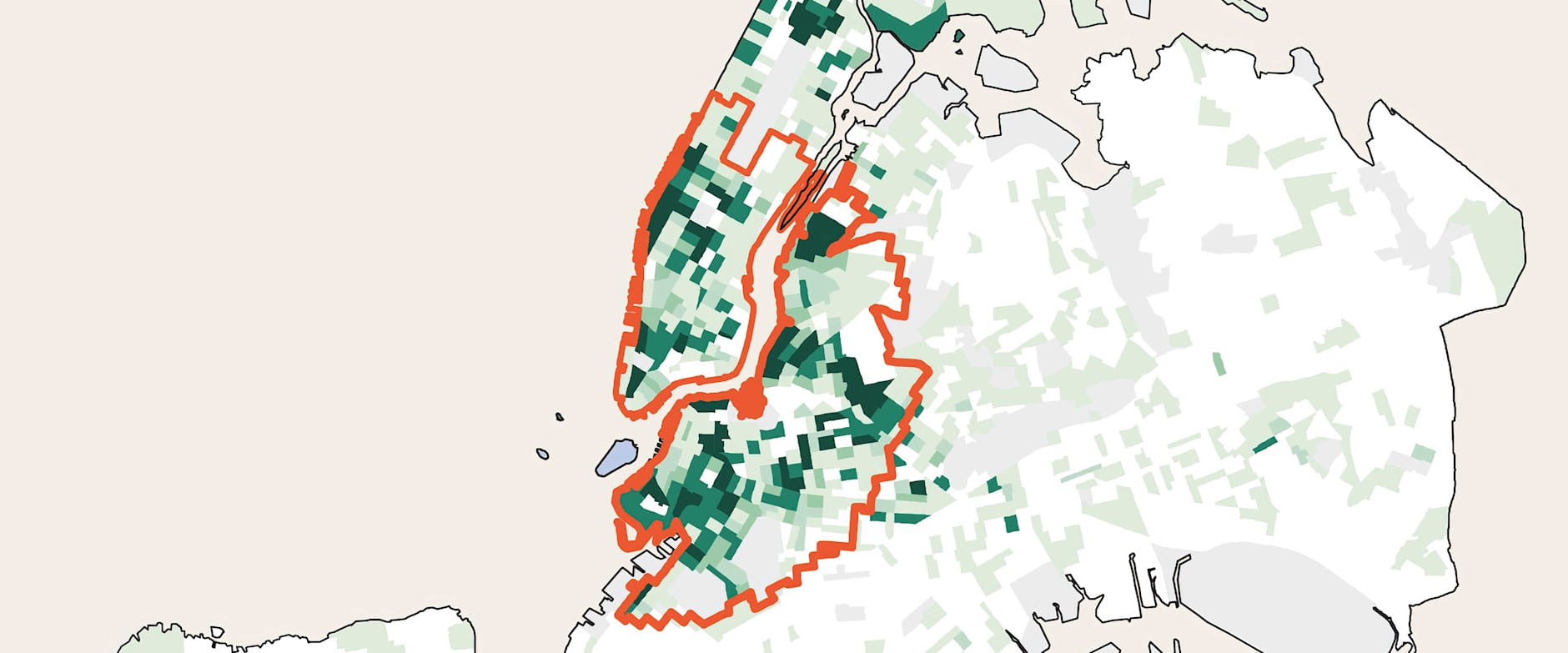As the rich in the United States get richer, they have been moving from the suburbs to downtown, boosting the demand for luxury amenities. While this process of gentrification has long been decried for pushing out poor people, it also measurably worsens income inequality, according to University of California at Berkeley’s Victor Couture and Cecile Gaubert, University of Pennsylvania’s Jessie Handbury, and Chicago Booth’s Erik Hurst.
The researchers analyzed US Census data from 1970, 1990, and 2000, along with the Census Bureau’s American Community Survey from 2012 through 2016. They find not only that the income gap between the wealthiest 10 percent and the poorest 10 percent widened by 19 points over 1990–2014, but also that gentrification contributed another 1.7 points to that gap.
This additional welfare calculation addresses the economic fallout for poorer residents, who had to pay more for downtown housing as the influx of wealthy residents drove up prices at restaurants and bars, along with the cost of entertainment and personal services. “Poorer residents, who are mostly renters,” the researchers write, “have a choice between paying higher rents for a bundle of amenities that they do not value as much and moving out of downtown.”
Median income growth in the primary counties of select US metro areas
Roll over the points on the map to see growth and decline in and around each metro area.
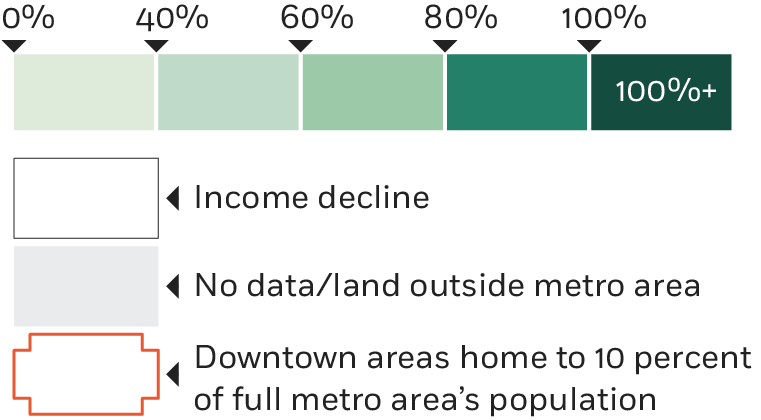

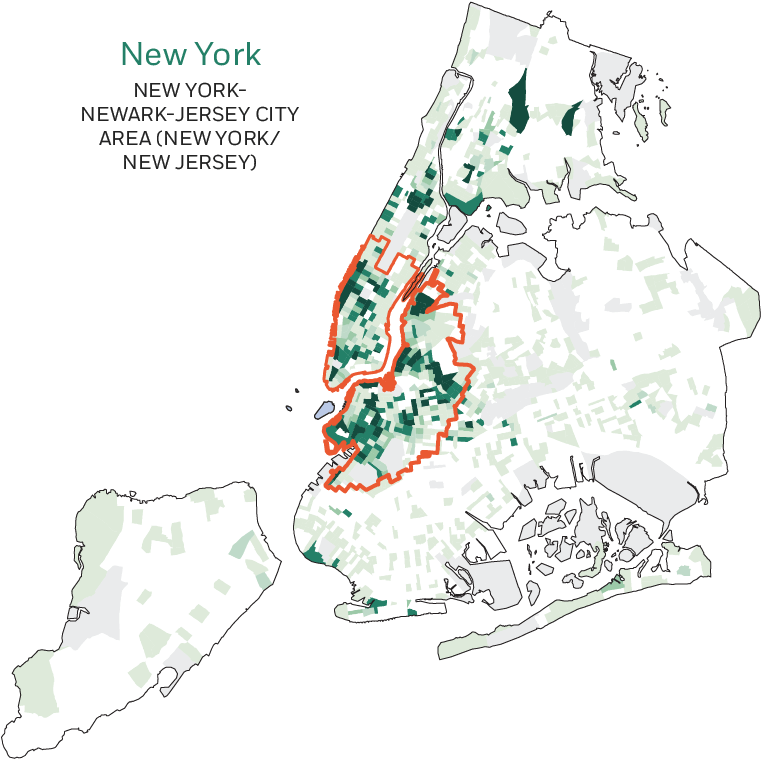
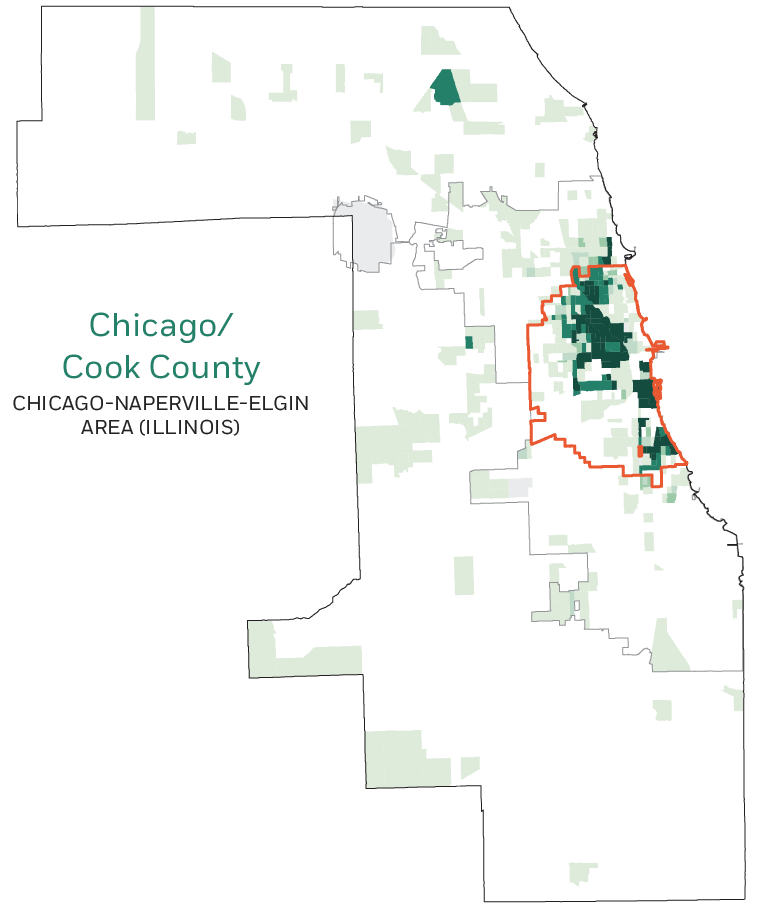
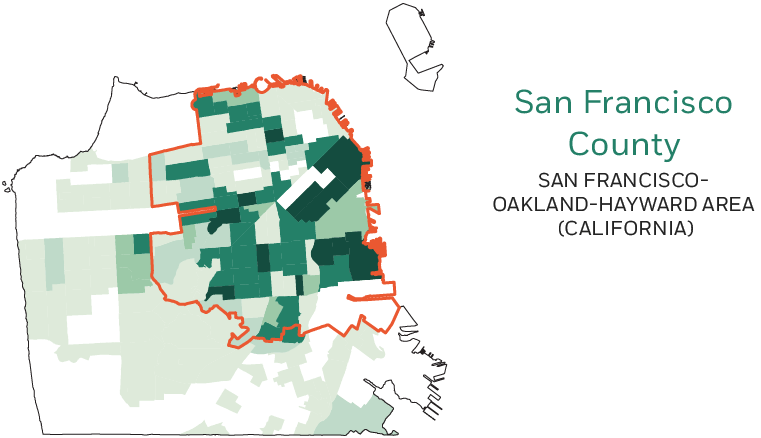
Victor Couture, Cecile Gaubert, Jessie Handbury, and Erik Hurst, “Income Growth and the Distributional Effects of Urban Spatial Sorting,” Working paper, August 2019.
Your Privacy
We want to demonstrate our commitment to your privacy. Please review Chicago Booth's privacy notice, which provides information explaining how and why we collect particular information when you visit our website.
